Table of Contents
- What Exactly Is Berbere Sauce?
- A Taste Rooted in History
- Inside the Spice Blend: What Makes Berbere Tick
- 5 Creative Ways to Use Berbere Sauce in Your Kitchen
- Berbere vs. Other Global Spice Sauces: A Comparison Table
- Buying Guide: How to Choose the Best Berbere Sauce
- Make Your Own: Homemade Berbere Recipe
- Frequently Asked Questions About Berbere Sauce
- Final Thoughts: Embrace the Heat and Heart of Ethiopia
What Exactly Is Berbere Sauce?
Berbere (pronounced bear-bear) is a traditional Ethiopian spice blend that's often used as the base for sauces, marinades, and stews. While it can be dry, the sauce version typically includes oil, vinegar, or water to create a paste-like consistency that clings beautifully to meats, vegetables, and grains.
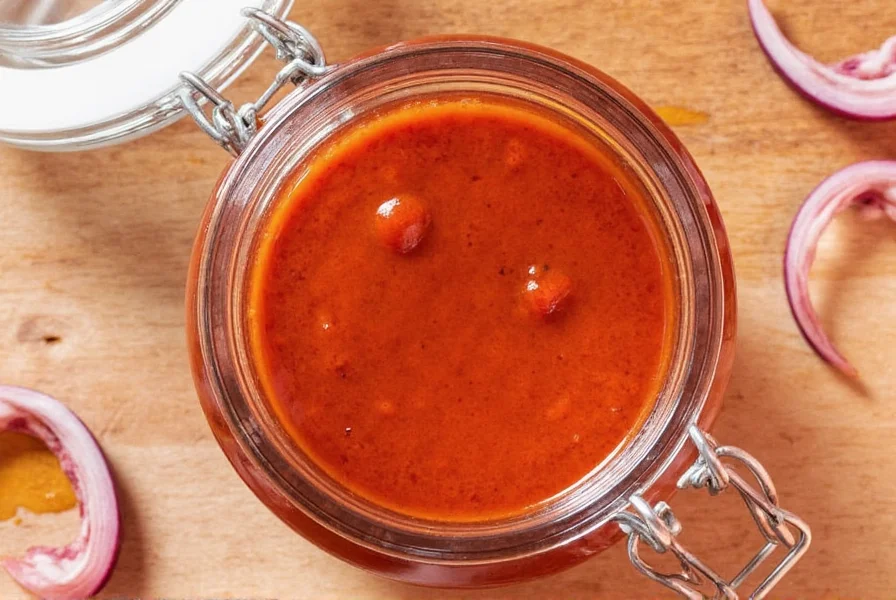
It's more than just heat—berbere offers layers of flavor from spices like chili peppers, garlic, ginger, fenugreek, coriander, and allspice. It's earthy, smoky, slightly sweet, and deeply aromatic. Think of it as the soul of Ethiopian cuisine bottled up for your convenience.
A Taste Rooted in History
Berbere has been a staple in Ethiopian kitchens for centuries. Its origins trace back to the highlands of Ethiopia, where families passed down their unique blends through generations. Originally crafted by hand using stone mortars, berbere was—and still is—a labor of love.
In modern times, its popularity has grown beyond East Africa, especially with the rise of global food movements and interest in plant-based diets. As more people seek bold flavors without relying on processed ingredients, berbere has found its way into fusion dishes, gourmet street food, and even vegan burgers!
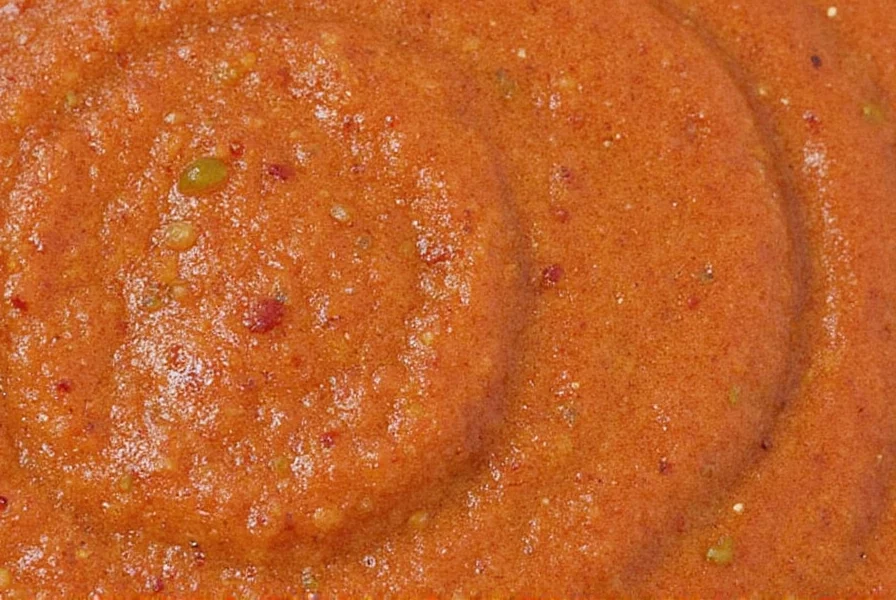
Inside the Spice Blend: What Makes Berbere Tick
The beauty of berbere lies in its versatility and depth of flavor. Here's a breakdown of common ingredients you might find in a typical berbere blend:
- Cayenne pepper – adds heat
- Paprika – provides color and sweetness
- Garlic powder – savory kick
- Ginger – warmth and zing
- Fenugreek – nutty and maple-like note
- Coriander – citrusy freshness
- Allspice – clove-like spice
- Korerima (Ethiopian cardamom) – floral aroma
- Jamaloti (long pepper) – subtle peppery bite
- Vinegar or lemon juice – balances and brightens
- Olive oil – gives it a smooth, saucy texture
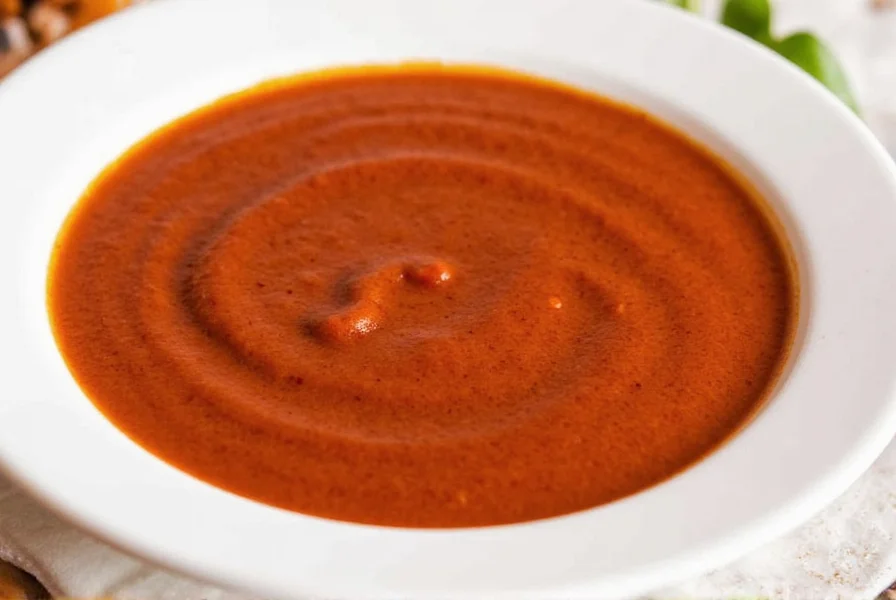
5 Creative Ways to Use Berbere Sauce in Your Kitchen
You don't have to make a full Ethiopian meal to enjoy this flavorful sauce. Here are five easy ways to integrate it into your everyday cooking:
- Marinate Meats: Mix berbere with olive oil and lemon for a bold rub for chicken, lamb, or beef before grilling or roasting.
- Elevate Grains: Stir a spoonful into cooked rice, quinoa, or couscous for an instant flavor boost.
- Stir-Fry Base: Add a dollop to your veggie stir-fry along with coconut milk for a spicy North African twist.
- DIY Dressings: Combine with yogurt or tahini to make a zesty dressing for salads or grain bowls.
- Roasted Veg Magic: Toss carrots, cauliflower, or chickpeas with berbere before baking for a deliciously spiced side dish.
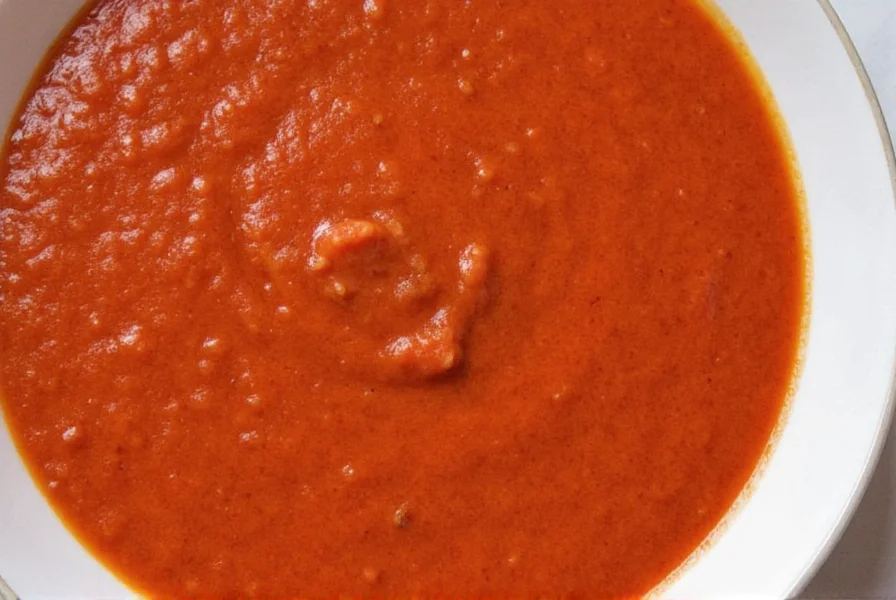
Berbere vs. Other Global Spice Sauces: A Comparison Table
| Feature | Berbere | Sriracha | Harissa | Miso Paste |
|---|---|---|---|---|
| Main Use | Marinade, stew base | Condiment, topping | Paste for North African dishes | Fermented seasoning paste |
| Heat Level | Medium-High | High | Medium-High | None |
| Flavor Profile | Earthy, smoky, aromatic | Vinegary, garlicky | Smoky, citrusy, spicy | Savory, umami |
| Key Ingredients | Chili, garlic, spices | Chili, vinegar, sugar | Chili, cumin, coriander | Fermented soybeans, salt |
| Best For | Grilled meats, lentils | Asian-inspired dishes | Tagines, couscous | Soups, glazes |
Buying Guide: How to Choose the Best Berbere Sauce
With so many brands flooding the market, how do you pick the right one? Here's what to look for when shopping for berbere sauce:
- Ingredients List: Look for minimal, recognizable ingredients. Avoid additives like preservatives, artificial colors, or excessive sugar.
- Texture: Should be thick but spreadable, not runny or overly oily.
- Heat Level: Decide whether you want a milder or spicier blend. Some brands offer "mild," "medium," and "hot" versions.
- Oil Base: Olive oil is traditional and healthy; avoid those made with cheap vegetable oils.
- Reputation: Stick to trusted brands or specialty stores that carry authentic Ethiopian products.
Here are some popular berbere sauces currently on the market:
Top Picks for Berbere Sauce
- Sheba Ethiopian Spices Berbere: Classic flavor profile, perfect for beginners. Great value for the quality.
- Himalayan Organics Organic Berbere: Certified organic and vegan-friendly. Slightly earthier taste.
- Tewolde's Traditional Berbere: Hand-blended and authentic. Stronger spice and deeper flavor notes.
- Mizuna Farms Berbere Paste: Ready-to-use paste with olive oil and vinegar already mixed in. Ideal for quick meals.
- Adidasu Natural Berbere: Made in small batches with Ethiopian-grown chilies. Offers both paste and dry spice versions.
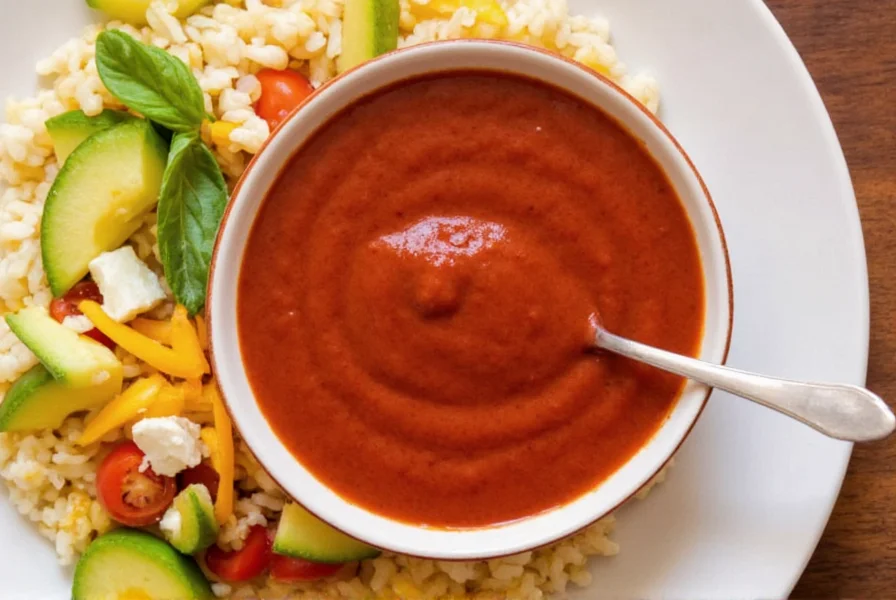
Make Your Own: Homemade Berbere Recipe
If you're feeling adventurous—or if you want total control over the flavor—making your own berbere sauce is easier than you think. Here's a simple recipe to get started:
Homemade Berbere Sauce Recipe
Ingredients:- 3 tbsp cayenne pepper
- 2 tbsp paprika
- 1 tbsp ground ginger
- 1 tsp garlic powder
- 1 tsp ground coriander
- ½ tsp fenugreek
- ½ tsp allspice
- ¼ tsp korerima (or substitute with regular cardamom)
- ¼ tsp jamaloti (or black pepper)
- 2–3 tbsp olive oil
- 1 tbsp apple cider vinegar or lemon juice
- In a bowl, mix all the dry spices together until well combined.
- Add the olive oil slowly, stirring continuously to form a paste.
- Mix in the vinegar or lemon juice to balance the richness.
- Store in an airtight container in the refrigerator for up to two weeks.
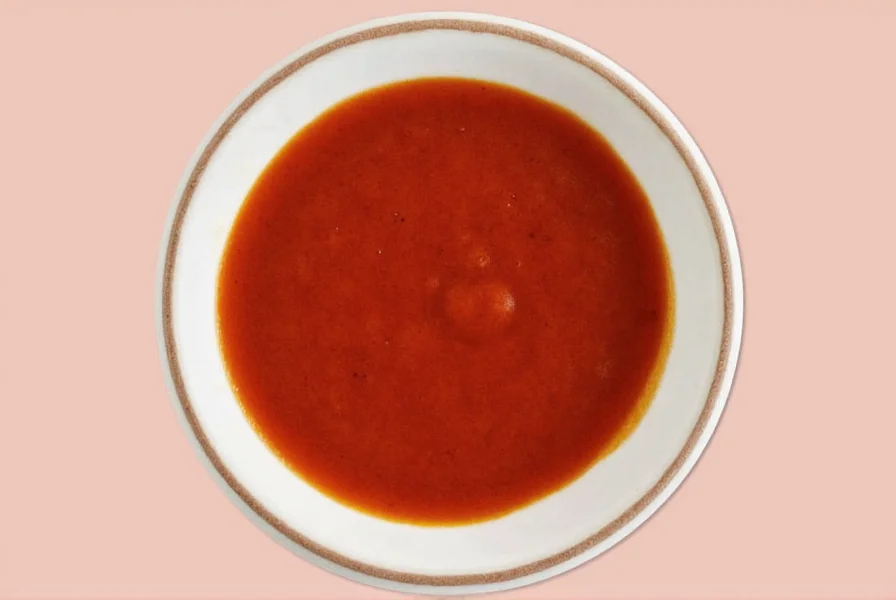
Frequently Asked Questions About Berbere Sauce
What is berbere sauce made of?
Berbere sauce is primarily made from a blend of ground spices including chili peppers, garlic, ginger, fenugreek, coriander, and allspice. The sauce version typically includes oil, vinegar, or water to create a paste-like consistency.
Is berbere sauce the same as berbere spice?
No, they're similar but not identical. Berbere spice is a dry powder blend, while berbere sauce includes additional liquids like oil and vinegar to create a paste. The spice blend can be turned into sauce by adding these liquids.
Can I use berbere sauce instead of harissa?
Yes, but keep in mind that berbere has a more complex flavor profile and may not provide the same smoky depth as harissa. Adjust quantities accordingly.
Is berbere sauce vegan?
Most store-bought versions are vegan, but always check the label for hidden animal-derived ingredients like fish sauce or gelatin.
How long does berbere sauce last?
Unopened, it can last up to 12 months. Once opened, refrigerate and use within 4–6 weeks for best flavor.
Can I freeze berbere sauce?
Absolutely! Freeze in ice cube trays for easy portioning and defrost as needed.
How spicy is berbere sauce?
Berbere sauce ranges from medium to high heat depending on the brand and recipe. It's known for its complex flavor profile that balances heat with earthy, smoky, and slightly sweet notes.
What dishes use berbere sauce traditionally?
In Ethiopian cuisine, berbere sauce is essential for dishes like doro wat (chicken stew), misir wat (lentil stew), and tibs (sautéed meat dishes). It's also used as a marinade for meats and vegetables.
Where can I buy berbere sauce?
You can find berbere sauce in specialty grocery stores, African/Ethiopian markets, and increasingly in mainstream supermarkets. Many brands are also available online through retailers like Amazon.
Final Thoughts: Embrace the Heat and Heart of Ethiopia
Berbere sauce isn't just another trendy hot sauce—it's a flavor story steeped in culture, tradition, and craftsmanship. Whether you buy it ready-made or whip up your own batch, adding berbere to your kitchen arsenal opens up a world of bold, satisfying dishes.

So go ahead, shake things up a little. Let your taste buds travel. The next time you open a jar of berbere, remember—you're not just cooking with spice. You're savoring centuries of flavor.

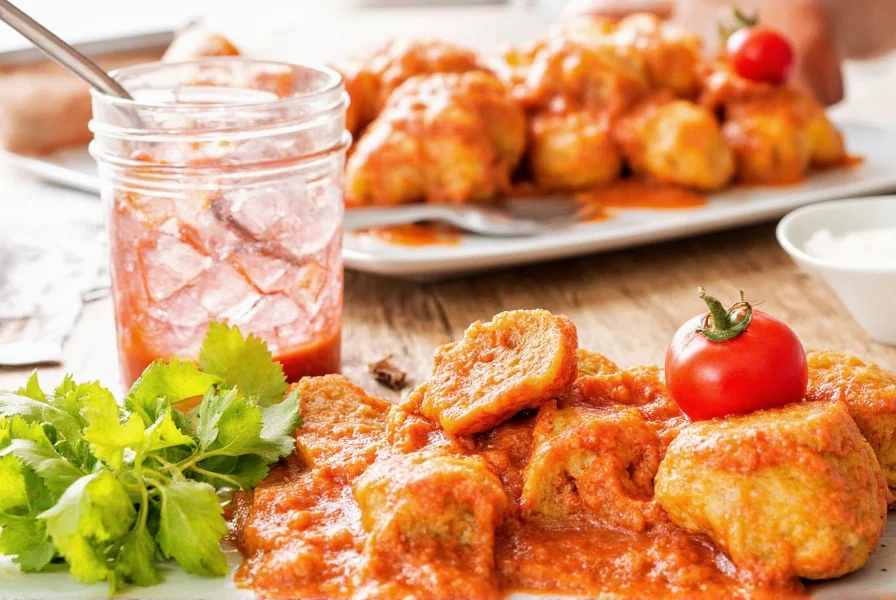









 浙公网安备
33010002000092号
浙公网安备
33010002000092号 浙B2-20120091-4
浙B2-20120091-4